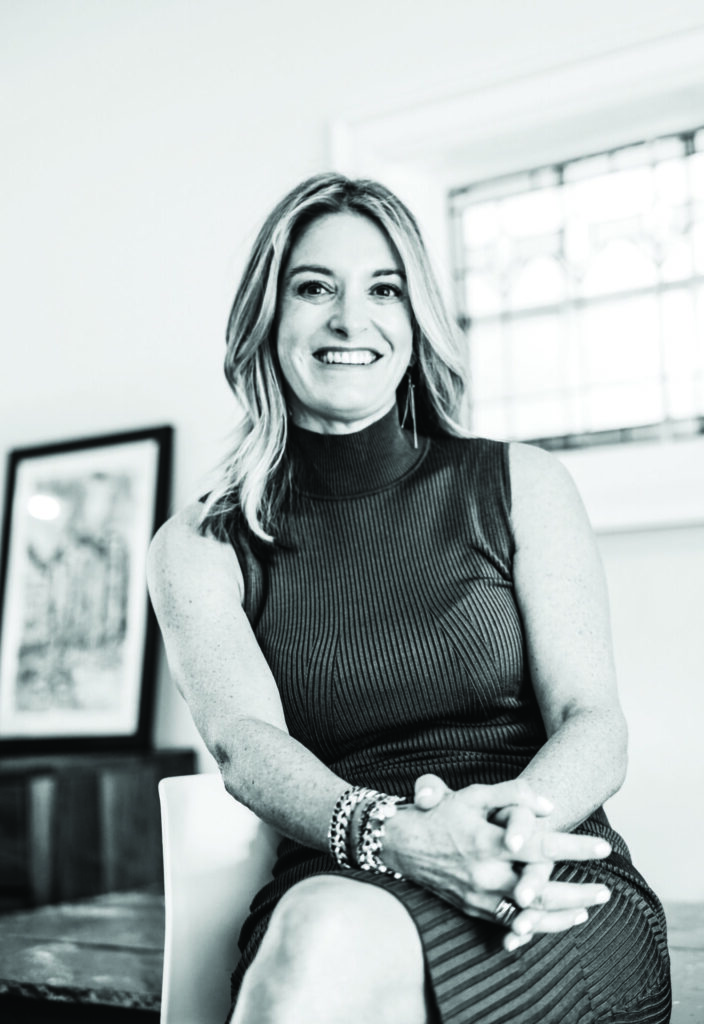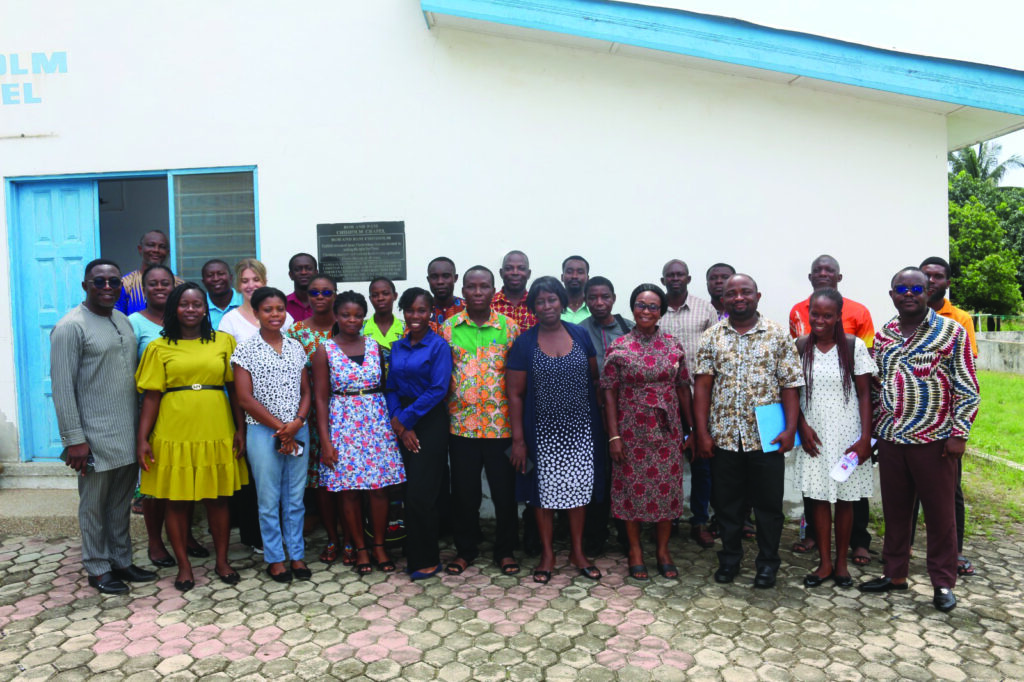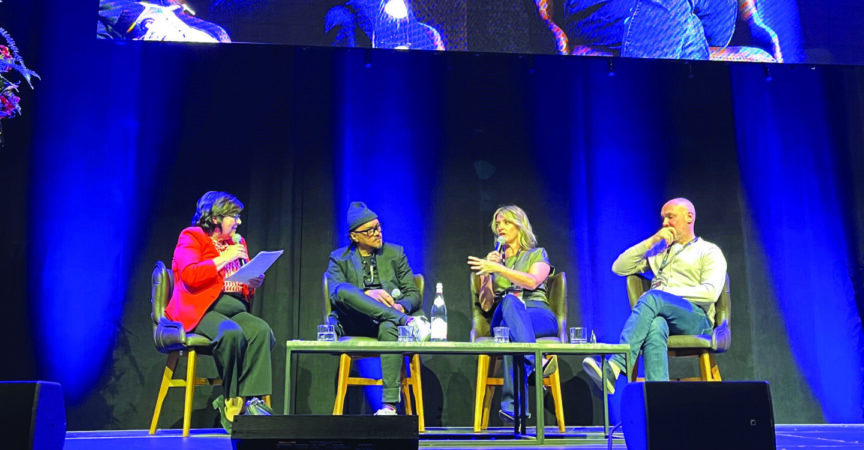MENU in conversation with with Val Upfold, Executive Hospitality Recruiter, HR Advisor & Principal at Val Upfold Inc.
Val Upfold is a seasoned hospitality leader and industry advocate. Her long career has evolved and ascended from the bustling floors of independent restaurants to a human resource leadership role with Oliver & Bonacini to her own hospitality executive recruitment firm. Val’s story is not just about climbing the ranks; it’s about redefining them with intention and vision, blazing a path forward in an industry that thrives on innovation and expertise.

Val joins the MENU editorial roster this fall, with the launch of her regular column, People Perspectives. By sharing her extensive knowledge in human resources and offering invaluable advice and insights to industry professionals and independent restaurant operators, Val is looking forward to giving back to the community that has been instrumental in her own success, while fostering growth and elevating standards for others across the hospitality sector.
This conversation with Val took place a few days after her return from a volunteer consultancy role in Ghana.
MM: Your career is a true example of the evolutionary potential of hospitality careers. Can you share your journey?
Val Upfold: I started out bussing, then bartending and ultimately serving at a country and western bar in Guelph, Ontario. I worked there while studying business at Western University, and it was then I started to realize that I really liked restaurants and wondered if I could make a career out of it. I then moved to Australia on a working holiday visa and found a serving job at a restaurant in Sydney. When someone asked if I wanted to be a manager, I said I’d try it. I stayed for three years before coming back to Toronto, which was when I got hired at Canoe. When I started working there, I felt I was way over my head because I was 27 or 28 and the servers were twice my age. I felt I had to level up my skills, so I started studying wine, which led to getting my sommelier designation.
After four years or so, I started to think, “Okay… I love this industry, but I don’t know if I want to work until 2:00 a.m. every shift and work every weekend. That’s when I looked into other things I could do and so I did HR training and pitched Peter Oliver and Michael Bonacini, the owners of Oliver and Bonacini, on the concept that the organization needed human resources. The organization was smaller then, just three restaurants. I put together proposals and started doing all this extra work on the side—developing training manuals—while I was still managing at Canoe, and after about a year, they finally agreed. I started doing a few days a week in HR while still managing and moved to full-time HR in about six months.
MM: So, you hustled your way up and made your own role?
VU: Yes, and that’s something I tell a lot of people—that you have to kind of “make your own job” sometimes in hospitality. Especially women. We’re not always very good or very comfortable selling ourselves because you have to be persistent, and maybe that’s not in our DNA as much. I worked at O&B as HR Director for about 10 years—so five years at Canoe and 10 years in HR—until someone I used to work with asked if I wanted to get into recruiting.
I wasn’t sure I wanted to retire at O&B, so I thought I’d try it. I started recruiting with another company and opened my own about three years ago. It’s hospitality recruiting, so I’m still working in the restaurant industry, but I’m doing my own thing.
MM: You’re a mother—was it difficult finding flexibility and balance within the industry?
VU: Being a mother and trying to find your way up in the hospitality industry is tough, to put it mildly. When I was working in HR, I was working Monday to Friday days, so I was already in a good position, but I didn’t want to go back to full time after my maternity leave. Again, I pitched Peter and Michael on coming back three days a week. I put together a plan to showing a few ways that could work and they agreed. The idea was accepted because I did the work and put together a few scenarios they could consider. I didn’t just ask for a favour or an exception. So again, you have to speak up and be strategic if you want to make a move out of day-to-day operations.
MM: Because some of the flexible structures that have become routine in other sectors are tougher to visualize and implement in hospitality?
VU: Yes. You really need to make a plan for yourself. If you want to stay in the industry and you want to have children, you need to plan and put your steps in place. At O&B in HR, I was often the champion of new ways of accommodating life changes. I would go to Peter and Michael and ask why we couldn’t do things differently? Why couldn’t we have a lunch manager? Part of my role was changing mindsets and developing different ways of doing things and demonstrating how they would work.
MM: Did that cause any friction for you?
VU: It created some conflict with some other leaders in the company who were more “old-school” in their thinking—like you have to be on the floor 12 hours a day. It created some conflict for sure, but most of these adaptations were on behalf of longer-term employees.
That’s also important. If you’ve only been working somewhere for six months, it may be hard to get leadership aligned on a new idea. Again, you need a plan.
I can specifically remember the first person who asked and was granted a flexible schedule at O&B, and she ended up working for them for 20 years. That willingness to work differently also helps with retention because you’re not losing amazing people just because they get to a point in their careers when they need a regular or part-time schedule. Allowing job sharing and other accommodations is
particularly important if you want to retain great women and attract others.
MM: How would you describe and promote the scope of long-term professional development and advancement opportunities in hospitality now?
VU: It’s changing, and there’s more awareness these days, but you still need to plan what you want to do, and you have to set yourself apart. If you’re a restaurant manager and you want to move into an office job, which a lot of people eventually want to do, you have to differentiate yourself and get the skills for the role you want. If you’re good at training in restaurants, you can take an instructional design course. If you want to get into marketing, you can take a marketing or graphic design course. You have to do something that makes you different from everybody else because there is a lot of competition for “restaurant adjacent” roles.
It’s also smart to gain experience in both independent and corporate restaurants to make yourself more well-rounded. You should always be taking a step up with every job move.
MM: We have heard that you were central in the development of the legendary O&B Handbook. Is this true?
VU: I was involved, but there have been many iterations of the Handbook through my time there. There was a large HR section, so I would have done that. Remember, it was a small company when I started there. I was with Peter every day, for years, because his office was right across from mine and he was very involved. There were a bunch of us involved in that, because we were in at the beginning of what O&B would become—they have over 50 restaurants now.
MM: That Handbook comes up in a lot of conversations we’ve had across the industry—it’s a bit of a legend.
VU: When you’re in it you don’t necessarily realize it, but so many extraordinary people have come up through that company, and many are still there today. Peter was very involved in it and that really impacted a lot of people. At the time, no one in independent restaurants had that sort of thing.
MM: What impact do you feel the early integration of HR and the Handbook might have had on O&B, and on the independent restaurant industry more broadly?
VU: I think it made people feel like they were a part of a real business. There was still the love of hospitality and the curtain opening and The Show, but people felt they were also running a business and learning transferable skills. The Handbook laid it all out. The company values that it contained were spoken about all the time—at every briefing. We’d always say, “Oh, they drank the O&B Kool-Aid,” but that was a thing because people grew and successfully developed within that system. Peter always said the Handbook was something we needed to live and breathe every day, and there’s no question it helped with O&B’s growth.
MM: What do you feel are the toughest human resource challenges facing the industry today?
VU: From a recruitment perspective, it’s the hours. There are a lot of really talented people who love the industry, but it’s not physically or mentally possible for them to stay in it. So, in an industry where you’re already having a shortage of labour, it’s exacerbated. If people are wanting to start families in their 30s, you’re losing a lot of talent at a relatively early age.
The labour shortage is the biggest challenge, so the industry can’t keep refusing to look at things differently and can’t keep doing things the same way.

MM: What is the greatest human resource opportunity for the industry?
VU: I think it’s a similar and related thing. My neighbourhood is full of Bay Street bankers and lawyers and similar professionals, yet I also live here. I’m a restaurant person who has managed to create a successful career. We need to address the perception of restaurants as an interim job industry.
The challenge is to change people’s perceptions, starting from parents. Why are we all okay with young people getting into the mutual fund or insurance industries, but not a restaurant company? To support that change, restaurants need to mirror the professionalism of other industries to attract professionals they need.
It also has to take root in schools. I was on a panel with someone from Fairmont and another hotel group and they now have a co-op program for their restaurants. Spending more time in high schools and colleges and educating parents about all of the industry career options is so important. It’s a different generation—parents are involved in
everything.
On the other side, the industry has to back it up by actually putting development programs in place. The last thing we want is for young people to buy in, get in and then have a negative experience. Restaurants and the industry need to put their money where their mouth is so that the perception can change. We can’t just tell people they can work in a restaurant and then end up as an SVP of Finance for Four Seasons or Swiss Chalet and not build those career paths.
MM: What’s the single greatest contributing factor to a restaurant’s success?
VU: I’m going to have to say people—that really does impact everything. We used to ask an interview question, “Rank in order of importance: money, employees or guests.” Employees rank first because employees directly impact the money and the guests.
If you prioritize and invest in employees, that positively affects everything else.
MM: The last thing I want to talk about is your recent trip to Ghana. Catalyste+ is an organization that recruits senior professionals across a variety of in-demand sectors to provide mentorship and advisory services to their clients through a sequence of short-term, strategic assignments around the world. How did that come about and what were you in Ghana to do?
VU: I always said my dream job would be working in HR for Doctors Without Borders in a war zone. This is a much safer way to do it. My first assignment with Catalyste+ was during the pandemic, so it was virtual. I applied to help support Village of Hope, which started as an orphanage, but grew to build a primary school, then a high school and now a hospital in Gomoa Fetteh in Ghana. The facilities grew as the village saw the success of the original orphanage, and now has about 400 employees. One man started it all and he doesn’t have any human resource support, or a fundraising plan—he’s just doing everything on his own, in a “grassroots” way. Their board of directors wanted to hire an HR Director, and approached Catalyste+ to help them get started with a performance management system and provide training on how to conduct formal performance reviews, give feedback and tie that to compensation. In Ghana, compensation is tied to the inflation rate, which was 52 per cent last year.
MM: What was it like to set up formal processes in a completely different country?
VU: It’s very different in a lot of ways. Jobs are scarce in Ghana, so if an employee has a problem with something at work, they often won’t say anything. Part of why I was brought in to help the new Director was the fact that, because I was flown in as an “expert from Canada”, leadership were more likely to listen to me, simply because I was coming from the outside world.
We started with the basics, working from the ground up and I trained all of the managers and executives on their performance management systems, but I think the biggest difference this made was that it got employees talking about things at work, and that was progress for them.
You have to keep things in perspective. We are so fortunate here to talk openly about schedule flexibility, maternity leave, recycling… I just posted something on my Instagram about how there’s a bill about to be passed in Ghana that could jail employers for hiring an LGBTQ2S+ person.
I’m also obviously a social extrovert—I worked in restaurants, so it was hard for me to be by myself for two weeks in a place that’s dark most of the time because there’s no power off and on. People would come and drop off food to me around 6 p.m., and I’d invite them to stay and chat, but they couldn’t because they had to be back at work at 5 a.m. the next morning. They were working later because I was there, and they had to stay to cook my dinner.
But then the word must have gotten out, because everyone started talking about what was happening and how they felt at work or what they were working on for the first time. I was able to go and speak to the Managing Director and HR Director about some of the conversations I’d had with staff, and they were able to set up follow up meetings for the next week.
It’s a good place, and they’re really not at fault for just getting this started. If you look at their Employment Standards Act and their labour laws, they’re fairly similar to Canada’s. But, who’s going to follow them when there’s no following up and they can’t even get reliable power?
MM: You’ve agreed to write a regular industry HR column, People Perspectives, in MENU. What drew you to the opportunity and what are you hoping to share?
VU: Hospitality is an industry that I love—there are so many great things about it.
When I started my hospitality recruiting company during the pandemic, people needed me. As operators continued to lose money but still called on my services, I was conflicted. There were people who had never had to use recruiters before dropping off cheques at my house and asking me to please help them. I knew they couldn’t afford it and it gave me a terrible feeling. Our industry was falling apart, and I was doing better than I ever had.
I feel the need to give back somehow, and I think I can provide useful, helpful information to support independent operators. So many people in this business have the passion, but they don’t know the HR essentials, and they can’t afford to pay someone to support them. That’s what I hope People Perspectives can help do.










